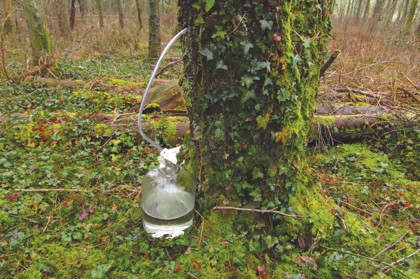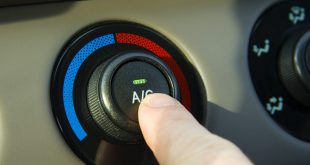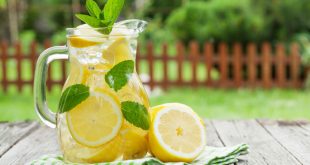
In Eastern Europe, Russia and Scandinavia, people have used birch water as a herbal pick-me-up for years. Recently, it’s appeared in cafes and health-food stores in the US, and now it’s reached Australia.
The “water” comes from birch trees that grow predominantly in the northern hemisphere. One major producer has birch forests in Finland that are cultivated for their sap.
The trees are “tapped” for their liquid – to do this, a small hole is made in the trunk and the clear, syrup-like sap is extracted and processed. It can only be collected for a few weeks in April and May, when the tree sends nutrients from its roots up the trunk to new buds forming on its branches. If it’s left too late, the sap becomes bitter.
Why is it healthy?
“It contains plenty of naturally-occurring antioxidants, electrolytes, trace minerals and vitamins,” Christine Stavropoulos of Sealand Birk, a birch water producer that’s recently launched in Australia, says.
Birch water contains potassium, copper, calcium and zinc. Potassium builds protein and muscle, while copper is important for our brain, heart and nervous system and helps the body form red blood cells. Calciumbuilds strong teeth and bones, and zinc is important for our immune system and wound healing.
Birch water also contains saponins, chemical compounds found in plants that advocates of the drink say help reduce cholesterol. It contains about 18 calories per 100ml and is naturally sweet thanks to an ingredient called xylitol, which is produced in the tree’s bark.
“Birch water is a naturally sweet drink that contains B vitamins, vitamin C, some minerals, amino acids and antioxidants,” Sanchia Parker, a dietitian and spokesperson for the Dietitians Association of Australia, says. “It’s a refreshing drink with a little nutrition and it’s nutritionally similar to plant waters such as coconut water and maple water. You need to check the brand before buying to ensure there are no added sugars or flavours, though.”
Fans of the water (which costs $3.99 for 330ml of Sealand Birk’s varieties) say it also helps eliminate waste and rejuvenates the skin. “Birch mainly works on the urinary system to assist in removing waste products,” Stavropoulos says. “It assists in reducing fluid retention and clears the skin. The beauty industry is recognising the benefits of organic birch derivatives and is sourcing it to use in skincare ranges.”
Gimmick or good for you?
Stavropoulos says the water’s health history proves its worth, however, Parker says some of the benefits that are attributed to the drink need more investigation.
“Saponins are phytochemicals that are found in many plant foods,” Parker explains. “While there’s some information that saponins may reduce blood cholesterol, this research is based on saponins in legumes, soybeans and other plant sources, so we can’t yet assume that the saponins in birch will behave the same way.”
Parker says more evidence is also needed of birch water’s benefits for weight loss and detoxing. “There could be something there, but at the moment there isn’t enough information about this drink having any specific health effects.
“New products on the market are always exciting but there’s no quick fix that’s going to solve everyone’s health problems,”
Parker adds. “If you’re curious, then definitely try birch water – have it as a low kilojoule/low sugar option instead of juices and soft drinks, but it’s not going to fast-track you to your health goals.”
Other botanical waters
- Aloe vera water
The alkalising effect of the aloe leaf is thought to help fight inflammation, provide immune support and remove toxins. It’s used to treat conditions such as diabetes and high cholesterol, and it’s a good tonic for those with digestive problems because of its laxative properties.
- Maple water
The sap of the maple tree is said to be a low-sugar alternative to the often high-sugar coconut water options. Its high levels of polyphenols prevent cellular damage, and abscisic acid makes it effective at movingsugar out of the bloodstream and stimulating healthy immune function.
- Cactus water
The nectar of the prickly pear cactus has zero fat and is lower in sugar than most botanical drinks. It contains many electrolytes, minerals and flavonoids, which prevent cellular damage. Studies have shown it can reduce the severity of a hangover when taken before you start drinking alcohol.
Source: bodyandSoul
 We are sharing information for knowledge. Presented by. SocialDiary.Net
We are sharing information for knowledge. Presented by. SocialDiary.Net



